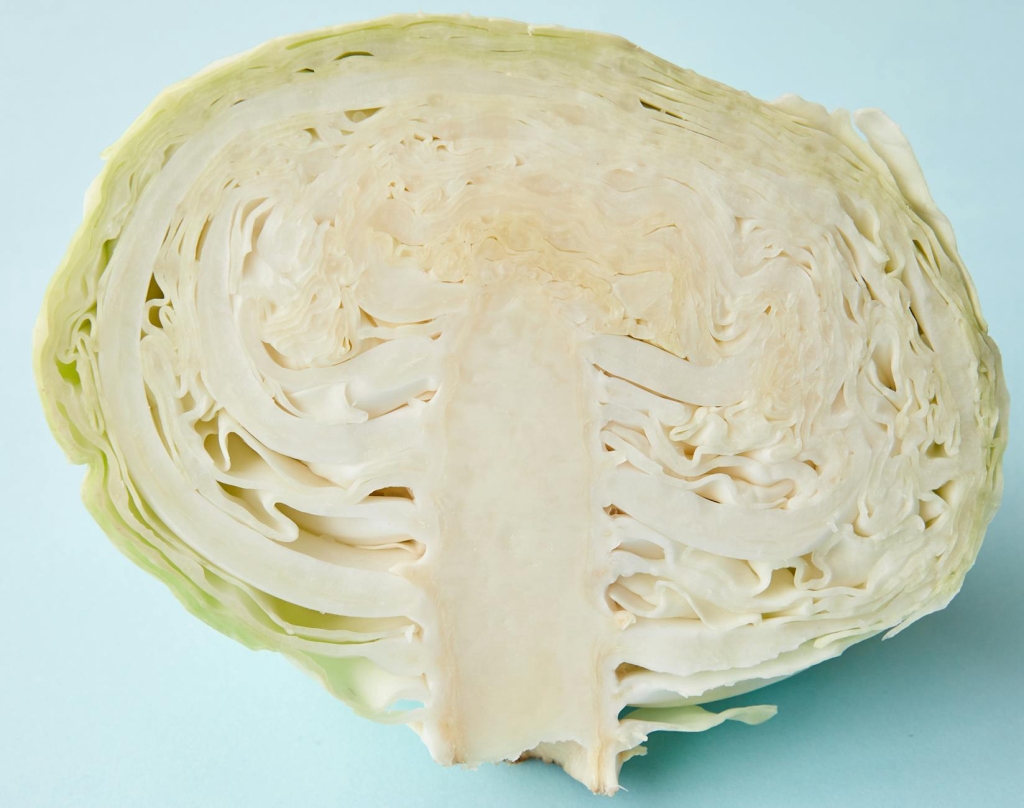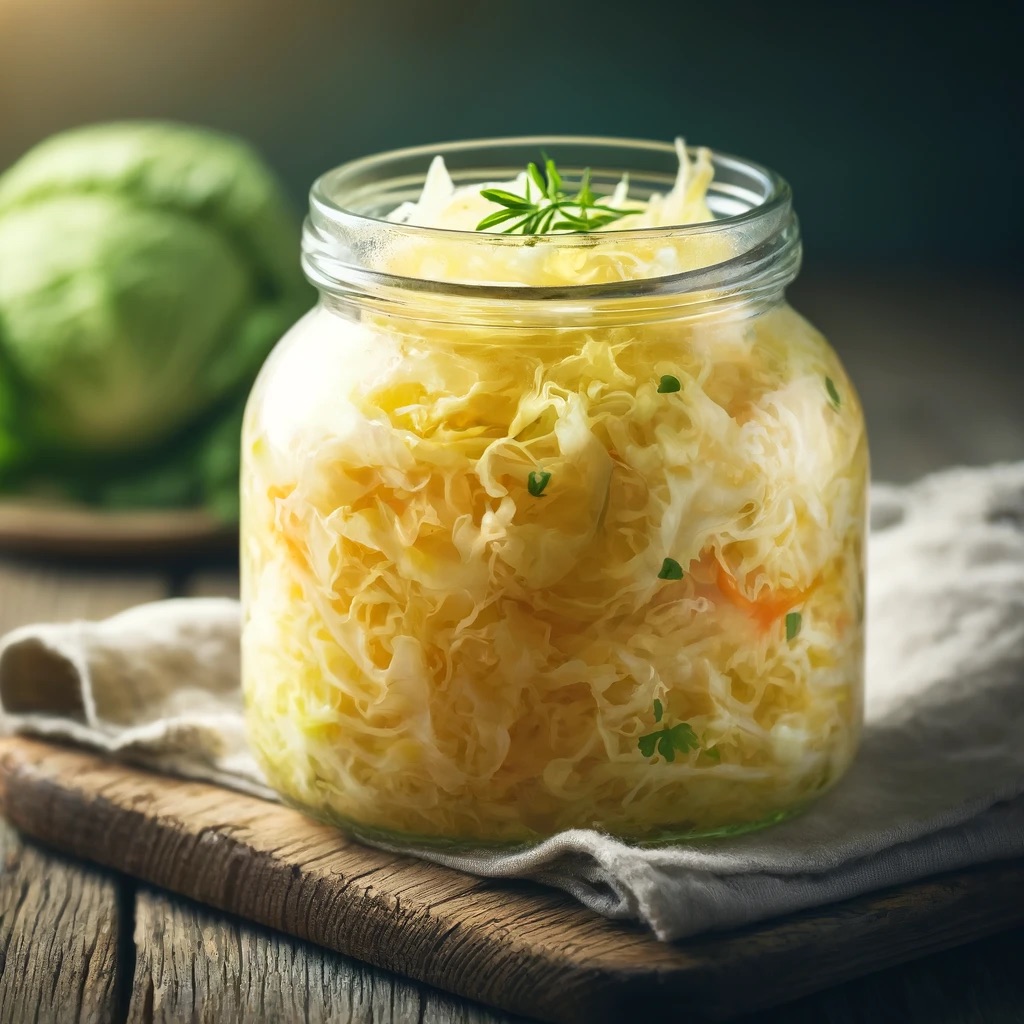
In our third edition of “Servings of Serenity” on Vienna Lane, we tackle our tangy, go-to condiment for that extra zang—Sauerkraut! This one definitely has our mouth-watering, which, by the way, there’s actually a scientific explanation for!
This fermented cabbage dish is renowned not just in its traditional grounds of Germany and Eastern Europe, but globally, for its distinctive tart flavor and health benefits.
In our opinion, this nutritional powerhouse is seriously underestimated and oddly enough, surrounded by misconceptions. Let’s chat about why sauerkraut is a must-have in our diet, its surprising benefits, and why it’s more than just a condiment. Though, a superb one at that.
Nutritional Benefits and Probiotic Richness
Low in calories yet high in essential nutrients, sauerkraut is a rich source of vitamins C and K, fiber, iron, and manganese. The fermentation process it undergoes not only enhances its shelf life but also makes it a probiotic gem. These beneficial bacteria, primarily from the Lactobacillus family, are crucial for maintaining a healthy digestive system, which in turn supports our overall health.
Global Popularity and Culinary Uses of Sauerkraut
While traditionally tied to German cuisine, sauerkraut earns popularity across various cultures, including in Korean dishes like kimchi and as a favored condiment and side dish in the U.S.
Its culinary versatility makes it an excellent addition to soups, and sandwiches, and as a killer side to robust meat dishes, showing us that sauerkraut is far from being just a hot dog topper.

Why Sauerkraut Makes Your Mouth Water
The sharp, tangy taste of sauerkraut can definitely make your mouth water, which is a reaction rooted in human physiology.
Pretty cool.
When you taste something sour, like the lactic acid from fermented cabbage, it triggers your salivary glands to produce more saliva. This not only aids in the digestion process but also helps to dilute and wash away the acids, protecting your mouth’s delicate tissues.
This innate reaction to sour flavors highlights the distinctive sensory impact of sauerkraut and its ability to promote optimal digestive processes. We believe that such positive sensory encounters also serve as significant mood boosters, a subject we plan to explore more deeply in a future blog post.
Optimal Sauerkraut Consumption for Health Benefits
Integrating sauerkraut into your diet several times a week, in servings of about half a cup, can maximize its health benefits without overdoing the sodium intake. This is particularly beneficial for enhancing gut flora and boosting digestive health.
Storage Solutions for Sauerkraut
Properly stored in an airtight container in the refrigerator, sauerkraut can last several months up to a year. Amazing, right? Freezing is also an option; while doing so may slightly alter the texture, it won’t diminish its nutritional value or probiotic content.

The Gut-Brain Connection
The benefits of sauerkraut extend beyond the gut.
The gut-brain axis highlights the significant impact that gut health has on mental well-being and cognitive functions.
An imbalance in gut bacteria can contribute to various health issues, including mood swings and cognitive disorders. Regular consumption of sauerkraut can help balance this flora, leading to improved mental health and overall vitality.
Addressing Common Misconceptions About Sauerkraut
While there’s not too many misconceptions about sauerkraut floating around out there, a few do exist:
1. High Sodium Deterrant (for individuals without health conditions): While sauerkraut does contain salt, its actual sodium content can be managed by rinsing it before use, making it suitable for a balanced diet in individuals who don’t need to limit their sodium intake due to certain health conditions.
2. Limited Use: Beyond being a mere condiment for sausages, sauerkraut can enhance a variety of dishes with its flavor and health benefits. The variety of temperatures used to serve sauerkraut also helps to extend its versatility way past the bun.

3. Pairs well with only “unhealthy” foods: To add upon our last misconception, this nutritious food is far from just being a garnish to some quick, hearty meals but adds digestive power to many fresh, highly nutritious, flavorful meals, such as:
• Sauerkraut and Quinoa Salad: A refreshing, nutrient-packed meal.
• Grilled Fish with Sauerkraut: Combining the benefits of omega-3 fatty acids and probiotics.
• Vegan Stir-Fry with Sauerkraut: A burst of flavor and fiber that enhances any plant-based diet.
Who Should Avoid Eating Sauerkraut?
1. People on Sodium-Restricted Diets: Due to its salt content, sauerkraut may not be suitable for those who need to limit their sodium intake, such as individuals with hypertension, heart disease, or kidney disease.
2. Those Taking Certain Medications: People taking monoamine oxidase inhibitors (MAOIs) should be cautious due to sauerkraut’s high tyramine content, which can interact with these medications and cause health issues.
3. People with Thyroid Issues: Sauerkraut contains goitrogens, substances that can interfere with thyroid hormone production. Those with thyroid conditions, particularly those with iodine deficiency, might need to limit their intake.
4. Individuals with a Histamine Intolerance: Sauerkraut is high in histamines, the chemicals your body produces during allergic reactions. People with histamine intolerance might experience symptoms like headaches, skin irritations, or digestive upset when consuming fermented foods.
5. Those with Gastrointestinal Sensitivities: Although the probiotics in sauerkraut can benefit gut health, they can also cause bloating and gas, especially for those with conditions like irritable bowel syndrome (IBS) or those who are not used to fermented foods.
For these groups, it’s important to consult with healthcare professionals before adding sauerkraut to their diet to ensure it aligns with their health needs and doesn’t interfere with any medical conditions or treatments.
Servings of Serenity Says Yes to Sauerkraut
As we continue to uncover the profound effects of gut health on our overall well-being, sauerkraut stands out as a delicious and effective way to support a healthy lifestyle. So, go ahead and explore the benefits of this fermented favorite, and let us know your favorite recipes!
Bringing our take, to your plate
Vienna Lane
Disclaimer: The information provided in this blog is based on personal research and experience, and is intended for educational and informational purposes only. It should not be taken as medical or professional health advice. Always consult with a healthcare professional or a qualified expert before making any changes to your diet, health routine, or physical activity.
References and Further Reading
• Leonard, J. (2023). Health benefits of sauerkraut. Medical News Today. Retrieved from https://www.medicalnewstoday.com/articles/health-benefits-of-sauerkraut#safety
• Link, R. (2023). 8 Surprising Benefits of Sauerkraut (Plus How to Make It). Healthline. Retrieved from https://www.healthline.com/nutrition/benefits-of-sauerkraut
• Yan, F., & Polk, D. B. (2014). Probiotics and immune health. Current Opinion in Gastroenterology, 30(2), 133–138. https://doi.org/10.1097/MOG.0000000000000051
• Harvard Health Publishing. (2023). The gut-brain connection. Harvard Health. Retrieved from https://www.health.harvard.edu/diseases-and-conditions/the-gut-brain-connection

Leave a comment